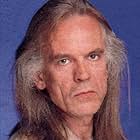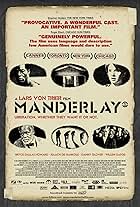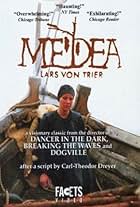ÉVALUATION IMDb
7,4/10
9,4 k
MA NOTE
Ajouter une intrigue dans votre langueFilmmaker Lars Von Trier challenges Jørgen Leth, the filmmaker behind The Perfect Human (1967), to remake his classic short under circumstances of increasing constraint.Filmmaker Lars Von Trier challenges Jørgen Leth, the filmmaker behind The Perfect Human (1967), to remake his classic short under circumstances of increasing constraint.Filmmaker Lars Von Trier challenges Jørgen Leth, the filmmaker behind The Perfect Human (1967), to remake his classic short under circumstances of increasing constraint.
- Prix
- 2 victoires et 4 nominations au total
Claus Nissen
- The Perfect Man - from 'Det perfekte menneske' 1967
- (archive footage)
Majken Algren Nielsen
- The Perfect Woman, from 'Det perfekte menneske' 1967)
- (archive footage)
- (as Maiken Algren)
Histoire
Le saviez-vous
- AnecdotesThe song played during The Perfect Human: Havana is "Planting the Seed" by David Holmes, which was also used in Ocean's 11 and appears on that movie's soundtrack.
- ConnexionsEdited from Det perfekte menneske (1968)
Commentaire en vedette
Many documentaries stand back from their subject, to portray it 'objectively', or else throw themselves into it with a fervour with which they hope to carry along the audience. The Five Obstructions is very different, turning in on itself to examine the creative process of film-making in a self-revelatory way that packs both instructive, artistic merit and emotional punch.
Lars von Trier is one of the founders of the Danish school of film-making (or collective) called Dogme 95. He instituted the idea of fairly arbitrary rules (the so-called 'Ten Commandments') as a possible route to more intrinsic cinema, avoiding the technological excesses and hollowness of Hollywood style movies. While there are similarities with the Dogme approach, Five Obstructions is not a 'Dogme' film: but it looks at the idea of rules as a means of stimulating the creative process.
The starting point is a early film short by Trier's old mentor, Jørgen Leth, called The Perfect Human. It is a seemingly anthropological movie where a human being (a man, switching occasionally to a woman) does various basic actions, walking, dressing, eating, undressing, jumps, dances, and a voice over says how we are going to "see the perfect human being in action". There is the occasional introspective line where the character ponders, "Today, too, I had an experience that I hope I shall understand in a few days' time." We see Trier (who considers himself an expert on very few things in life but Leth is one of them) in conversation with Leth. The latter accepts a challenge from Trier to remake the film five times, but each time with a different set of conditions imposed by Trier who will then judge how successfully Leth has succeeded in the task. The atmosphere is almost like a PhD student and tutor, yet although Trier obviously holds Leth in very high regard, it is Leth who is undergoing the teaching.
Through successive shoots, Trier makes Leth confront that which he most dislikes. He compares the process to when he is directing an actor, forcing a performance from the actor that the actor didn't know was within them. In the first four takes, we see Leth produce something that is artistically worthy with even the most daunting physical and psychological obstructions, but it is in the final obstruction that Trier produces a cathartic effect, turning the tables so thoroughly on Leth and himself that the result is greater than both of them. Instead of a documentary about a film about how a perfect human being works, it becomes a documentary about how a perfect film maker works.
The ending justifies the rather long and mentally tiring prelude. The overall result is a lasting testament on a particular way of reaching the creative process, and also a documentary testament to Trier's own particular genius. There is no artifice, no hype, only two people of great artistic integrity working together to pull something from their subconscious of lasting greatness.
Lars von Trier is one of the founders of the Danish school of film-making (or collective) called Dogme 95. He instituted the idea of fairly arbitrary rules (the so-called 'Ten Commandments') as a possible route to more intrinsic cinema, avoiding the technological excesses and hollowness of Hollywood style movies. While there are similarities with the Dogme approach, Five Obstructions is not a 'Dogme' film: but it looks at the idea of rules as a means of stimulating the creative process.
The starting point is a early film short by Trier's old mentor, Jørgen Leth, called The Perfect Human. It is a seemingly anthropological movie where a human being (a man, switching occasionally to a woman) does various basic actions, walking, dressing, eating, undressing, jumps, dances, and a voice over says how we are going to "see the perfect human being in action". There is the occasional introspective line where the character ponders, "Today, too, I had an experience that I hope I shall understand in a few days' time." We see Trier (who considers himself an expert on very few things in life but Leth is one of them) in conversation with Leth. The latter accepts a challenge from Trier to remake the film five times, but each time with a different set of conditions imposed by Trier who will then judge how successfully Leth has succeeded in the task. The atmosphere is almost like a PhD student and tutor, yet although Trier obviously holds Leth in very high regard, it is Leth who is undergoing the teaching.
Through successive shoots, Trier makes Leth confront that which he most dislikes. He compares the process to when he is directing an actor, forcing a performance from the actor that the actor didn't know was within them. In the first four takes, we see Leth produce something that is artistically worthy with even the most daunting physical and psychological obstructions, but it is in the final obstruction that Trier produces a cathartic effect, turning the tables so thoroughly on Leth and himself that the result is greater than both of them. Instead of a documentary about a film about how a perfect human being works, it becomes a documentary about how a perfect film maker works.
The ending justifies the rather long and mentally tiring prelude. The overall result is a lasting testament on a particular way of reaching the creative process, and also a documentary testament to Trier's own particular genius. There is no artifice, no hype, only two people of great artistic integrity working together to pull something from their subconscious of lasting greatness.
- Chris_Docker
- 21 déc. 2004
- Lien permanent
Meilleurs choix
Connectez-vous pour évaluer et surveiller les recommandations personnalisées
- How long is The Five Obstructions?Propulsé par Alexa
Détails
- Date de sortie
- Pays d’origine
- Site officiel
- Langues
- Aussi connu sous le nom de
- The Five Obstructions
- sociétés de production
- Consultez plus de crédits d'entreprise sur IMDbPro
Box-office
- Brut – États-Unis et Canada
- 165 845 $ US
- Fin de semaine d'ouverture – États-Unis et Canada
- 8 940 $ US
- 30 mai 2004
- Brut – à l'échelle mondiale
- 279 032 $ US
Contribuer à cette page
Suggérer une modification ou ajouter du contenu manquant


























